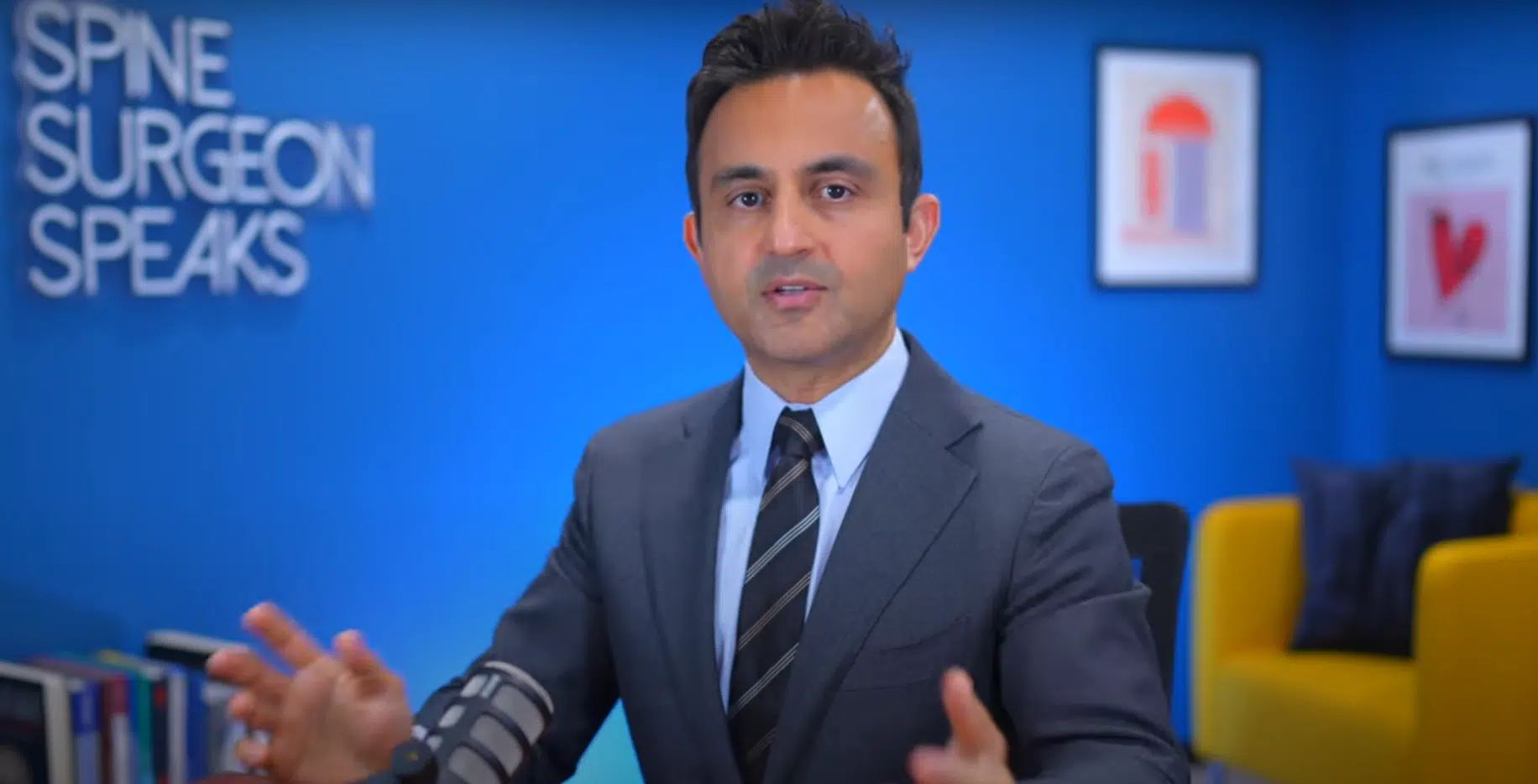In the realm of spine surgery, misinformation often fuels patients’ anxieties and concerns. In an effort to dispel these misconceptions, this article will address some of the most common myths frequently encountered By Dr. Mustafa Khan, Board-Certified Orthopedic Spine Surgeon from his patients.
Myth 1: Spine Surgeons Prefer to Operate on Patients with Back Pain
Contrary to popular belief, spine surgeons rarely operate on patients who only exhibit low back pain. Indeed, the most successful surgical outcomes are often achieved with patients who suffer from nerve pain or radiculopathy – pain that radiates down the leg or into the arm. Studies have shown that patients with back pain alone who undergo spine surgery have approximately a 50% chance of improvement, whereas patients with radiating nerve pain have a high success rate in the 90 percentile range. Therefore, most spine surgeons, including Dr. Khan, typically recommend against surgery for patients experiencing solely back pain without neurological complaints.
Myth 2: Recovery from Spine Surgery is Long and Painful
The belief that post-surgical recovery will be agonizing and lengthy is another common misconception. While some pain medication may be required in the initial days or weeks post-surgery, the aim is to gradually transition patients to non-opiate medications such as Tylenol, muscle relaxers, and nerve medications. The notion that spine surgery patients will continue to need strong pain medications weeks or even months later is generally untrue for the vast majority of cases.
Myth 3: Post-Surgical Stiffness and Limited Activity
Many patients harbor the misconception that post-surgery, their back or neck will be very stiff and their activity level significantly limited. This is far from the truth. Most patients can resume their everyday activities, such as household chores, driving, working in the backyard, going to the gym, swimming, biking, exercising, and even returning to sports like golf, once they recover from surgery.
Myth 4: One Spine Surgery Guarantees Another in the Future
Patients often express anxiety over the possibility of requiring additional surgeries in the future. However, this is largely a myth. The vast majority of patients who undergo a spine surgery will not require another one in the future. Although there are instances where a second surgery might be necessary, these constitute a relatively small percentage.
Rather than postponing necessary surgery due to fear of future operations, patients should consider that addressing their current spine problems effectively is critical to resuming their normal lives, jobs, and activities, and achieving a good quality of life. The possibility of requiring a second spine surgery is relatively low, around 10-15%, and lifestyle modifications can significantly reduce these odds.
One paper found that among 35,309 patients undergoing an initial discectomy, 4,943 (14.0%) had at least one reoperation and 803 (2.3%) had two or more reoperations. A total of 63% of the second reoperations were discectomies, 14% were spinal fusions, and the remaining 23% were decompressions. Patients with one reoperation after lumbar discectomy had a 25.1% cumulative risk of further spinal surgery in a 10-year follow-up.
For instance, smokers or nicotine users are more likely to require a second surgery compared to non-smokers. Thus, quitting smoking can significantly lower the chances of needing additional surgeries. Similarly, weight loss, regular aerobic exercise, and overall health maintenance can reduce the likelihood of further operations. Improving osteoporosis or bone health can also lower the chances of additional surgeries.
About Dr. Mustafa Khan, MD
Dr. Mustafa Khan is a board-certified orthopedic spine surgeon recognized by the American Board of Orthopedic Surgeons. Dr. Khan pursued his undergraduate degree at the University of Minnesota, where he majored in Genetics & Cell Biology, earning a Bachelor of Science. He then went on to acquire his Doctor of Medicine (M.D.) from the University of Pennsylvania School of Medicine. Dr. Khan also completed an Orthopedic Spine Surgery Fellowship Rush University Medical Center. His fellowship concentrated on degenerative conditions, deformities, and minimally-invasive spine surgery techniques.
